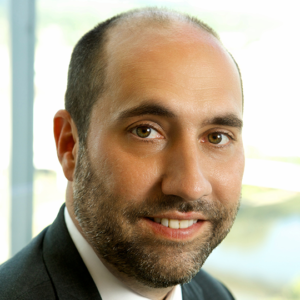Incarcerated juveniles like Tyshon Booker don't deserve 51-year life sentences | Opinion
The Tennessee Supreme Court is currently evaluating whether a mandatory 51-year sentence for juveniles violates the State or Federal Constitution. The case of Tyshon Booker— a 16 year old convicted of felony murder— has animated a conversation in Tennessee about how we treat young people in the criminal justice system.
A new Fault Lines documentary, which came out in June, explores the issue at a personal level. It follows the case of Almeer Nance, a 16 year old who was sentenced to 51 years in prison for taking part in a robbery in which an adult accomplice— who pressured Almeer to participate— shot and killed the victim, Joseph Ridings.
The Supreme Court of the United States has issued a number of decisions over the last decade on juvenile sentencing: banning the death penalty and mandatory life sentences without the option of parole for offenses committed by juveniles. These cases recognize that children are different.
Sentences that fail to account for the special status of children, their limited ability to make rational decisions, susceptibility to peer pressure and high capacity for change, make mandatory life sentences cruel and unusual punishment.
Hear more Tennessee Voices: Get the weekly opinion newsletter for insightful and thought provoking columns.
The majority of states have responded to these decisions by reducing mandatory minimum sentences for juveniles and allowing for earlier parole consideration.
Tennessee's harsh juvenile sentencing
Tennessee’s laws are out of step with the rest of the nation— maintaining what is now the harshest juvenile sentencing statute in the country. For homicide offenses, Tennessee treats children as young as 13 the exact same way it treats adults.
Like plenty of other cases since 1995, the judges that sentenced Tyshon and Almeer had no authority to consider a lower sentence, mitigating evidence or the juvenile’s potential for change. These individuals will spend their entire adult lives in prison and almost certainly will die there.
We have yet to identify any individual that has survived 51 years of incarceration in Tennessee. These sentences raise serious moral questions about what we as a society think about children, their capacity for change and how we can ensure public safety and accountability without writing off teenagers as incorrigible before they've had any chance to actually become adults.
Hear from Tennessee's Black Voices: Get the weekly newsletter for powerful and critical thinking columns.
Tyshon’s case is still pending before the Tennessee Supreme Court. Religious leaders from across the state came together to speak about our shared care for children and faith in redemption. These leaders repeat what we all inherently know—children grow and change.

We are not the same person we were at 16. The men and women serving sentences for crimes they committed as children deserve the chance to prove their capacity for change to a court or parole board before their life is nearly overly.

Your state. Your stories. Support more reporting like this.
A subscription gives you unlimited access to stories across Tennessee that make a difference in your life and the lives of those around you. Click here to become a subscriber.
Like so many parts of our criminal justice system, this draconian sentencing scheme also raises serious concerns about racial bias. As noted by the Tennessee NAACP in its brief in Tyshon’s case, more than 72% of these mandatory 51-year juvenile sentences were handed out to Black children— despite Black Tennesseans making up only 17% of our population.

In Shelby County, 100% of the juveniles sentenced to mandatory life sentences are Black.
We do not discount that juveniles should be held accountable when they are convicted of a crime as serious as homicide. But the status quo denies the full humanity of these individuals. This harms not only them, but also the integrity of our criminal justice system and society as a whole.
David Esquivel and Angie Bergman are attorneys with the law firm of Bass, Berry & Sims. They represent juveniles who have been sentenced for 51 years.
This article originally appeared on Nashville Tennessean: Tennessee needs to reform state sentencing laws for juveniles

